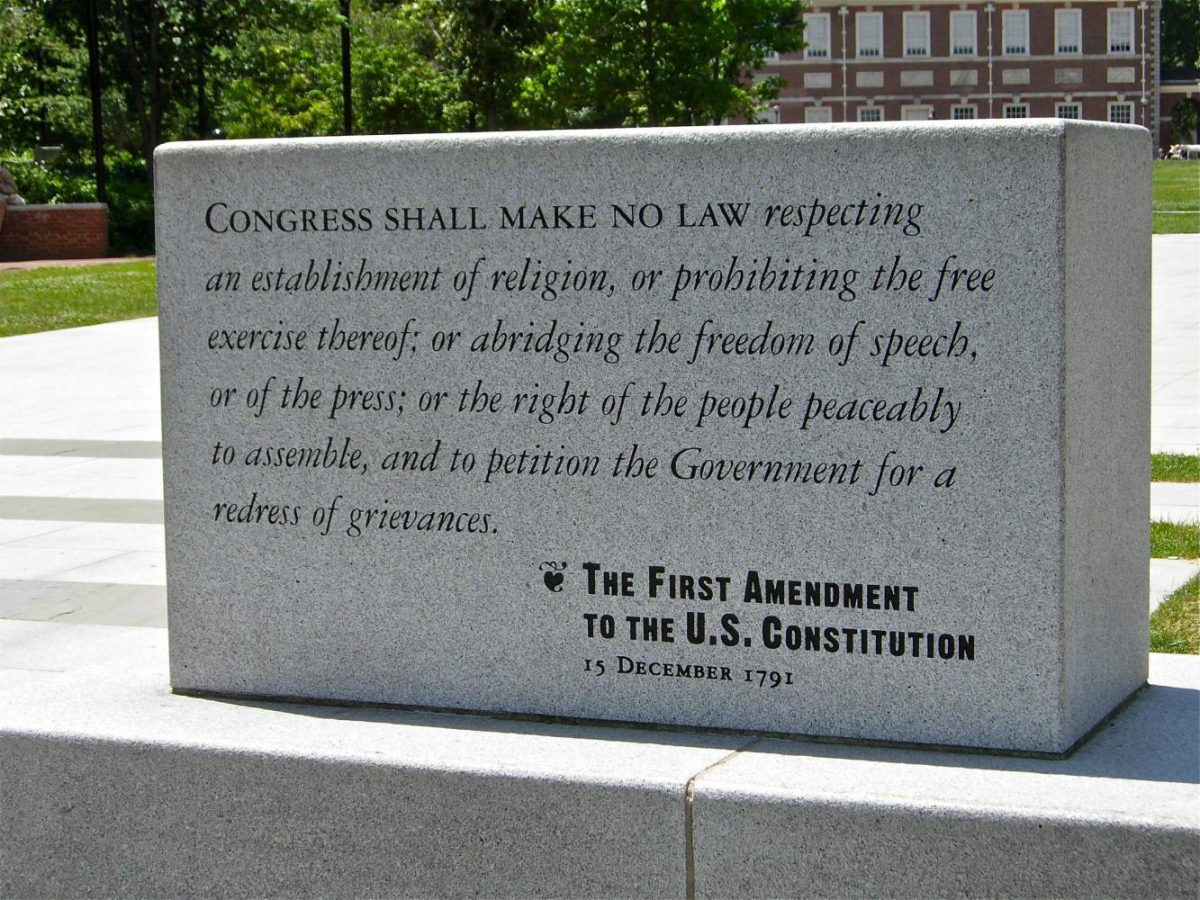Speech, not audience, is a right
“Free speech” means different things to different people, but monuments like this one in Philadelphia remind us that it is everyone’s right.
September 29, 2017
I will forever support the natural right of the people to speak as they please.
But if you speak in a way that your fellow citizens believe is unjust, there may be consequences, like being ostracized from your community.
As a culture, we have made the phrases “freedom of speech” and “I can say whatever I want without repercussions” synonymous, but that is simply not the case.
The First Amendment of the U.S. Constitution says, “Congress shall make no law respecting an establishment of religion or prohibiting the free exercise thereof; or abridging the freedom of speech, or of the press; or the right of the people peaceably to assemble.”
Let’s not forget that those liberties also mean people are still subject to criticisms by their fellow citizens, and that the citizens don’t have to listen to whomever may be speaking.
I wouldn’t object if the AACC administration invited a far-right or far-left speaker to come to campus.
It has every right—so long as the college does not show any preferred political leanings as a public institution.
And those speakers have every right to accept an invitation from the administration if they choose to.
They can speak their minds and voice their thoughts as vigorously as they please.
But they do not have the right to an audience.
Whether you are speaking at a convention or talking to friends, an audience is a privilege, not a promise.
Daniel Salomon is a transfer studies freshman at AACC. He hopes to study linguistics after he transfers.












